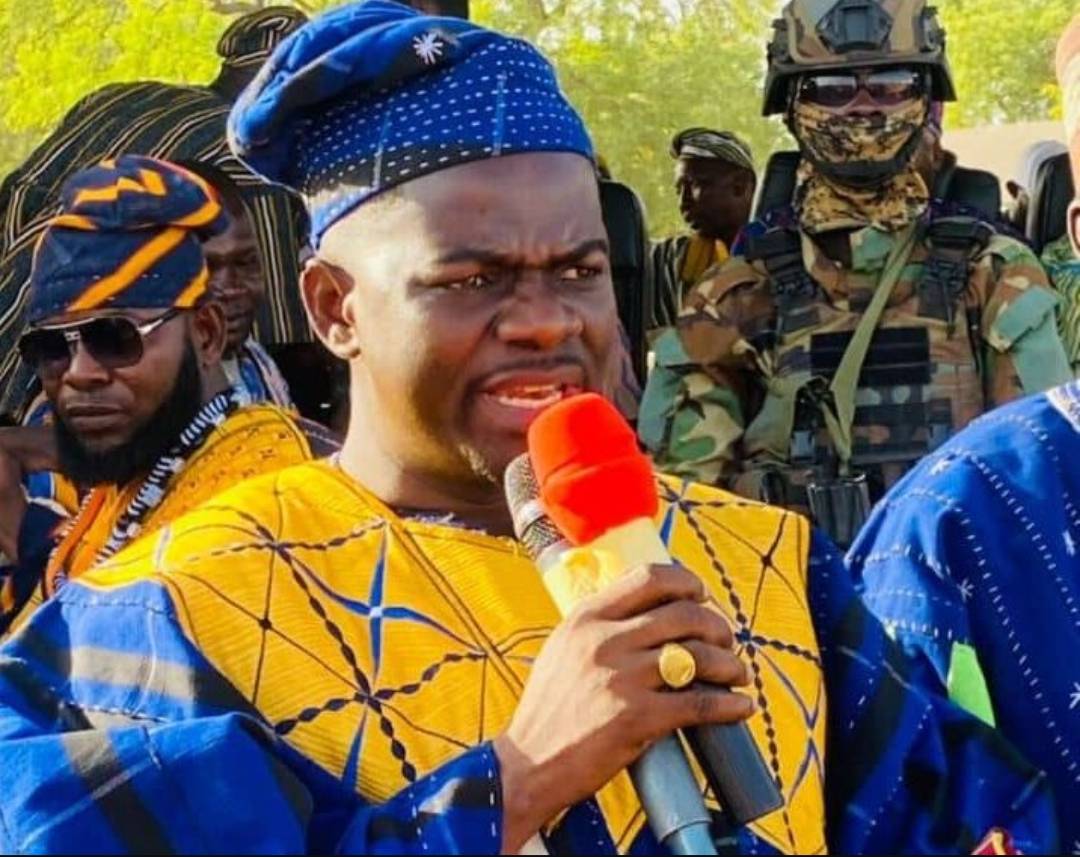In Ghana today, when the name Adam-GH is mentioned, many people quickly recognize him as a bold social commentator and activist who is never afraid to speak the truth. His real name is Abdul-Salam Azubila, and he is the Executive Director of the Anchoring Democracy Advocacy Movement (ADAM-G). Over the years, Adam-GH has built a reputation as someone who speaks fearlessly about issues affecting ordinary citizens, no matter which political party is in power.
Recently, his outspoken nature has placed him at the center of a heated conversation. Adam-GH has been openly criticizing the current National Democratic Congress (NDC) government, especially for what he sees as the poor handling of the Bawku conflict. His criticism has not sat well with some members of his own party, since Adam-GH is known to be an NDC member. They accuse him of being influenced or even paid by the opposition New Patriotic Party (NPP) to attack the ruling government.
But Adam-GH has strongly denied those claims. According to him, these accusations are not only false but also an attempt to silence his voice. He reminded the public that when the NDC was in opposition and the NPP was in power, he equally criticized the NPP government for failing to properly address the Bawku conflict. He asked a simple but powerful question: “If I was criticizing the NPP then, does that mean the NDC was paying me at the time?”
This question highlights the core of Adam-GH’s argument: his advocacy is based on truth, principle, and the need for justice, not on political convenience. To him, it does not matter which party is in power. If leaders are failing the people, he believes it is his duty to speak out.
The Bawku Conflict: A Matter of Peace and Security
The Bawku conflict has been a long-standing problem in Ghana. It is not just a political issue but also a humanitarian one, as many lives and properties have been lost over the years. Communities have been divided, families displaced, and young people left without hope. For activists like Adam-GH, keeping quiet while such a conflict continues would be a betrayal of the people he has always fought for.
He argues that governments—whether NPP or NDC—must be held accountable for how they handle the conflict. According to him, peace in Bawku should not be sacrificed for political gain. Instead, it should be a priority for any government that truly cares about its people.
Criticism From Within
What makes Adam-GH’s case unique is that he is not speaking from outside the political circle. He openly admits that he is an NDC member, but he insists that this does not mean he must blindly defend the party even when it is wrong.
In fact, Adam-GH revealed that some NDC members have punished him for being too outspoken. He said certain individuals in the party have deliberately blocked him from receiving political appointments because they see him as a “troublemaker.” But for Adam-GH, speaking the truth is more important than enjoying political privileges. He believes that true loyalty to a party means helping it stay on the right path, not covering up its failures.
A Consistent Voice
One of the strongest defenses Adam-GH has is his track record. He has been consistent over the years in criticizing both NPP and NDC governments when it comes to the Bawku conflict. This consistency proves that he is not being motivated by money or party politics. Instead, he is motivated by his passion for justice, democracy, and peace.
His critics may see him as a thorn in their side, but ordinary people who suffer the most from the conflict often see him as a voice for the voiceless. By speaking boldly, he brings national attention to an issue that some leaders might prefer to ignore.
Advocacy Over Silence
Adam-GH’s story teaches a very important lesson about democracy. A true democracy is not just about voting every four years. It is about allowing citizens, activists, and leaders to speak freely and hold governments accountable. If every person who criticizes the government is accused of being “bought” by the opposition, then the country risks silencing voices that are necessary for progress.
Adam-GH himself has made it clear that no amount of accusations will stop him from speaking up. He believes that silence helps injustice to grow, but advocacy can push leaders to act. For him, the Bawku conflict is not just a local issue; it is a test of Ghana’s commitment to peace and good governance.
Looking Ahead
The journey of Adam-GH is not an easy one. Being outspoken in a political environment often attracts enemies, false accusations, and missed opportunities. Yet, he continues to stand firm. His resilience shows that speaking truth to power comes with sacrifices, but it can also inspire others to be brave.
As Ghana continues to work toward resolving the Bawku conflict, voices like Adam-GH’s remain important. They serve as a reminder that leaders must put the people first and that peace should never be used as a political tool.
In the end, Adam-GH is not just criticizing for the sake of criticism. He is urging both the NDC and NPP to rise above politics and find lasting solutions. And as he often makes clear, his loyalty is not to any single party but to the ordinary people of Ghana who deserve peace, justice, and a better future.




No comments yet
Be the first to share your thoughts!